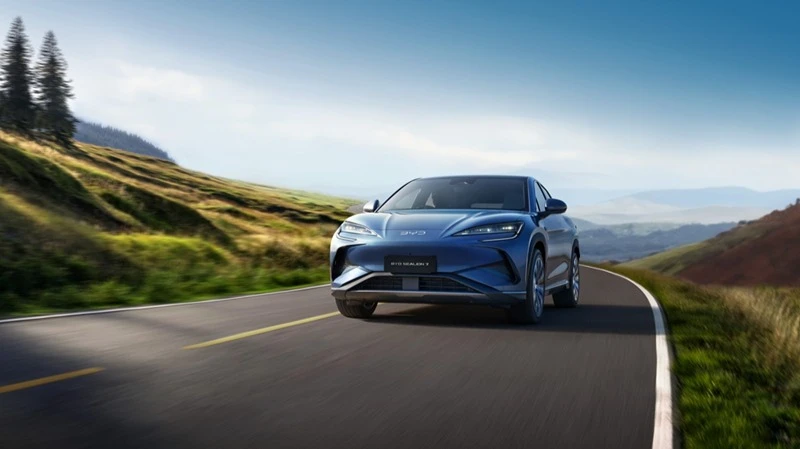Tesla rival loses momentum: China's BYD sales fall for first time in 2025
Shares of the electric car maker sagged and its annual target of 5.5 million vehicles was threatened amid a price war

BYD, China's largest electric car manufacturer and Tesla's main competitor, recorded a 10% year-on-year decline in sales in July. This is the first monthly decline this year and an alarming signal for investors, given BYD's ambitious goal of selling 5.5 million cars by the end of 2025. The company's shares, traded in Hong Kong, have fallen by more than 4% and have already lost about 28% of their value since their peak in May;
Details
BYD delivered 344,296 vehicles in July -just 0.6 percent more than a year ago, yet 10 percent fewer than in June. It's the electric car maker's first monthly sales decline since the start of 2025, noted Bloomberg.
The decline was particularly pronounced in the plug-in hybrid (PHEV) segment, instead of Investing.com. Here, sales collapsed 22.6% year-over-year and continue to decline month-over-month. Deliveries of all-electric vehicles (BEVs) rose 36.8% year over year to 177,887 units, but were down 14% from June. This shows the fragility of current demand, even in a strategically important category for BYD, the agency explains.
While lower summer sales are traditional and expected in the Chinese auto market, such dynamics jeopardize BYD's annual goal of 5.5 million vehicles delivered, notes Bloomberg. The company sold 2.5 million vehicles from January through July, and now needs to sell an average of about 602,000 cars per month to meet the target. By comparison, BYD's record of nearly 515,000 cars sold in a single month was set in December 2024.
What the analysts are saying
Against the background of the news, BYD shares slipped 4.2% on August 4, but then cut some of their losses and remained down 1.5%. The total drop from the May peak amounted to about 28%.
The company has an average target share price of HK$175.8, suggesting a 51% upside from current levels, according to data from TipRanks. Meanwhile, all eight analysts, covering these securities recommend buying them.
How the competition feels
Despite BYD's slowdown, other Chinese automakers are enjoying steady demand. Geely Auto sold 237,717 vehicles in July, its best result since November. Stellantis partner Leapmotor set its own record with 50,129 vehicles. Xpeng also posted a high of 36,717 cars for the month, according to CNBC. Xiaomi, which only recently entered the auto market, reported more than 30,000 electric cars delivered in July - up from 25,000 in June.
At the same time, Li Auto's sales were down 40% year-on-year to 30,731 units.
Sales of Chinese-made Tesla electric cars fell 8.4 percent in July from a year earlier and 5.2 percent on a month-on-month basis, wiping out a small June increase, reported the China Passenger Car Association. It's talking about Model 3 and Model Y deliveries to Europe and other markets, among others.
Context
China's auto market, the world's largest, is in a price war that has affected manufacturers, suppliers and dealers. Aggressive dumping BYD began in May: the company cut prices on a range of budget electric and hybrid models by about 30%. The move triggered a wave of similar promotions by competitors, and the large-scale price hike has alarmed authorities. In recent months, they have urged market participants to exercise restraint and refrain from "destructive competition" and, among other things, published draft amendments to the law on pricing, which proposes to ban the sale of goods below cost and limit price manipulation by algorithms;
This article was AI-translated and verified by a human editor
